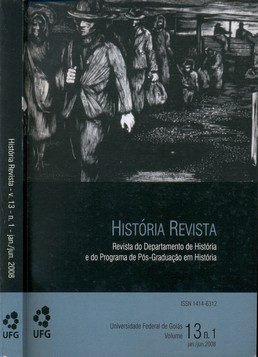154 YEARS OF RAILWAYS IN BRAZIL: WHERE DOES THIS TRAINS LEAD TO?
DOI:
https://doi.org/10.5216/hr.v13i1.5413Abstract
ABSTRACT
The aim of this paper is to investigate the major changes occurred in Brazil's railway policy regarding the interregional transport of passengers and loads. The establisment of Rede Ferroviária Federal (Brazil's Railway network) in 1957, unifying eighteen private companies, has had a response from the post 1990 government through the reprivatization of the network and the reformulation of the control agencies and the policies of execution. What interests do these changes serve? What are the characteristics of the Brazilian railway policy as established within the period above? These are complex issues, that involves the state form (in terms of political society), its relation with the market, the financial globalization question, the internal panorama of class struggle etc., all of which requiring more detailed studies of the railway sector in the development of the capitalism in Brazil.
KEY WORDS: Transport policy, railways, Rede Ferroviária Federal S.A.
Downloads
Downloads
Published
How to Cite
Issue
Section
License
Declaração de Direito Autoral
Concedo à História Revista o direito de primeira publicação da versão revisada do meu artigo, licenciado sob a Licença Creative Commons Attribution, que permite o compartilhamento do trabalho com reconhecimento da autoria e publicação inicial nesta revista.
Afirmo ainda que meu artigo não está sendo submetido a outra publicação e não foi publicado na íntegra em outro periódico, assumindo total responsabilidade por sua originalidade, podendo incidir sobre mim eventuais encargos decorrentes de reivindicação, por parte de terceiros, em relação à autoria do mesmo.



